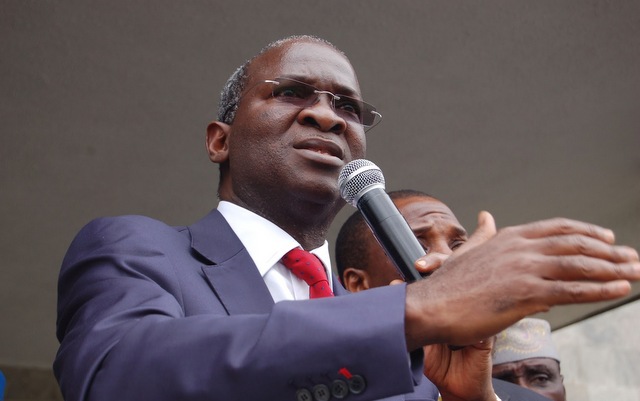According to Punch, the Federal Government has said that it will not oppose the wishes of electricity consumers that are willing to pay for meters from their distribution companies based on agreement between both parties as endorsed by the power sector regulator.
But in April last year, the Minister of Power, Works and Housing, Mr. Babatunde Fashola, had directed the Nigerian Electricity Regulatory Commission to immediately wind down its alternative metering scheme, the Credited Advance Payment for Metering Initiative, which allowed customers to pay for electricity meters from their respective Discos.
However, in his speech at the 18th monthly power sector meeting, which was made available to our correspondent in Abuja on Tuesday, Fashola stated he had been receiving several requests from the Discos that their customers still wanted to pay for meters. He said:
“Please recall that government had in the past attempted to intervene in meter supply through CAPMI, which ultimately I decided we should wind down because of the distrust and disaffection it was creating between consumers and Discos with government caught in the middle with numerous petitions by customers who paid for meters that were not delivered within the approved time.
“Some Discos have come back to say that their customers still want to pay for meters and they can reach agreements with them on how to pay for it. Government will not stand in the way of such an agreement. It is consistent with the intent of privatisation envisioned by the Electric Power Sector Reform Act or at least it does not violate the Act.”
He added:
“What I will reiterate is that the Discos have the obligation to meter customers because they are the ones who charge for electricity which must be measured. If the customers and the Discos reach an agreement between themselves, where the customer assumes the responsibility of the Disco of his own free will and NERC sanctions this agreement, then so be it.
“The difference between this kind of agreement and CAPMI is that it is not a government initiative. However, through NERC, government will monitor and regulate to ensure that Discos do not use this as an excuse to abdicate their responsibility to provide meters.”
Fashola said in addition to this kind of agreement, the government had decided to optimise the EPSRA provision to democratise access to meters, starting with the N39bn that would serve as a loan to the meter providers. He stated that while it was true that the Discos had the obligation to meter customers, the law did not vest a monopoly of meter supplies, or even retail sales on the Discos.
The minister said anybody who qualified under safety regulation by NEMSA and under licences issued by the NERC could supply meters to customers under conditions stipulated by the regulator.
“In other words, meter supply is an open but regulated business. You need a licence from NERC to undertake it. You need to comply with testing and safety standards of NEMSA to produce, import or install it but it is not a monopoly for Discos alone,” Fashola said.
Meanwhile, the Discos on Tuesday chose to keep mum on the statement by Fashola that they did not have the monopoly of metering electricity consumers. The Chief Executive Officer, Association of Nigerian Electricity Distributors, an umbrella body for the Discos, Mr. Azu Obiaya, told our correspondent on Tuesday that the association would not make any comment on the minister’s statement.
“We are taking a look at what the minister has done and if it is appropriate for us to comment on it, we will,” he added.
The Chairman, Network of Electricity Consumers Advocacy of Nigeria, Mr. Tomi Akingbogun, said:
“I think it is a technical statement by the minister, which might be difficult to implement because, for example, unless I am able to connect directly to the Transmission Company of Nigeria and have my electricity from them, bypassing the Disco, that’s the only time I can install my own meter.
“You can’t just go to a Disco and say you have your own meter and they will accept that meter. I don’t know if the Discos would be willing to liaise with any investors interested in going into metering of customers.”
According to Akingbogun, the Discos must, by law, provide transformers and any other equipment so that the consumers don’t have to pay for them.
“Ideally, if the meters are calibrated and good, and the Discos are not making money from the meters, they should be able to accept any standard meter to be connected. But they are not allowing that. All over the world, most electricity companies will not want you to bring in any meter,” he said.





















